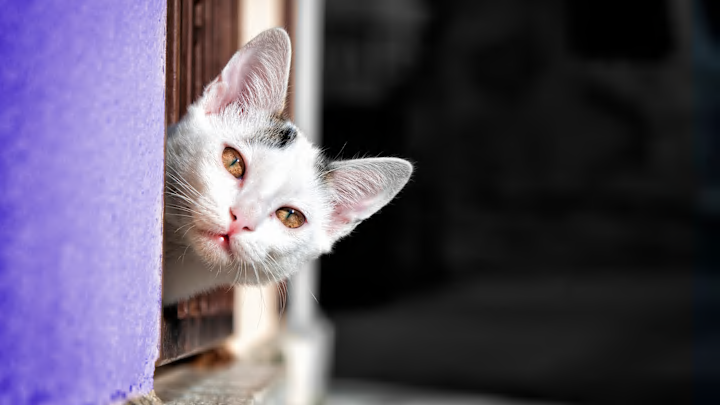Though they have a reputation for laziness, cats are capable of holding steady jobs. Libraries, firehouses, and even Disney theme parks have employed felines for their pest control skills. This symbiotic relationship between pets and people was alive all the way back in the 16th century, as evidenced by a cat door built into an English cathedral.
According to Hyperallergic, Exeter Cathedral’s cat door is one of the oldest known to exist. The church was founded in the county of Devon in 1050, and its current wooden door was installed in 1376. The door led to a large astronomical clock that was greased with animal fat to keep the gears moving smoothly. This attracted rodents, and in 1598, Exeter bishop William Cotton had carpenters carve a hole in the door so hungry cats could enter.

The church took the animals’ mouse-hunting duties seriously. Cathedral records from the 14th and 15th centuries show that cats were typically paid 13 pence a quarter for their efforts. Some documents show payments of 26 pence, but they don’t specify whether this went to two cats or one particularly hard worker with an insatiable appetite. The records also don’t clarify how the cats collected or spent their earnings.
Dating back 425 years, the cat door is certainly old, but some debate whether it deserves the title of world’s oldest. A similar entryway can be observed in Italy’s church of San Giorgio, which was constructed between 1566 and 1610. While the origins of other historical cat doors are mysterious, the one at Exeter is unique in that it can be traced back to an exact year. That alone makes it one of the most noteworthy examples of the feature. Instead of preserving it behind glass, the church still uses the door for its original purpose. A cathedral cat named Stapledon (named after a 13th-century bishop) has been spotted poking his head through the hole in recent years.
